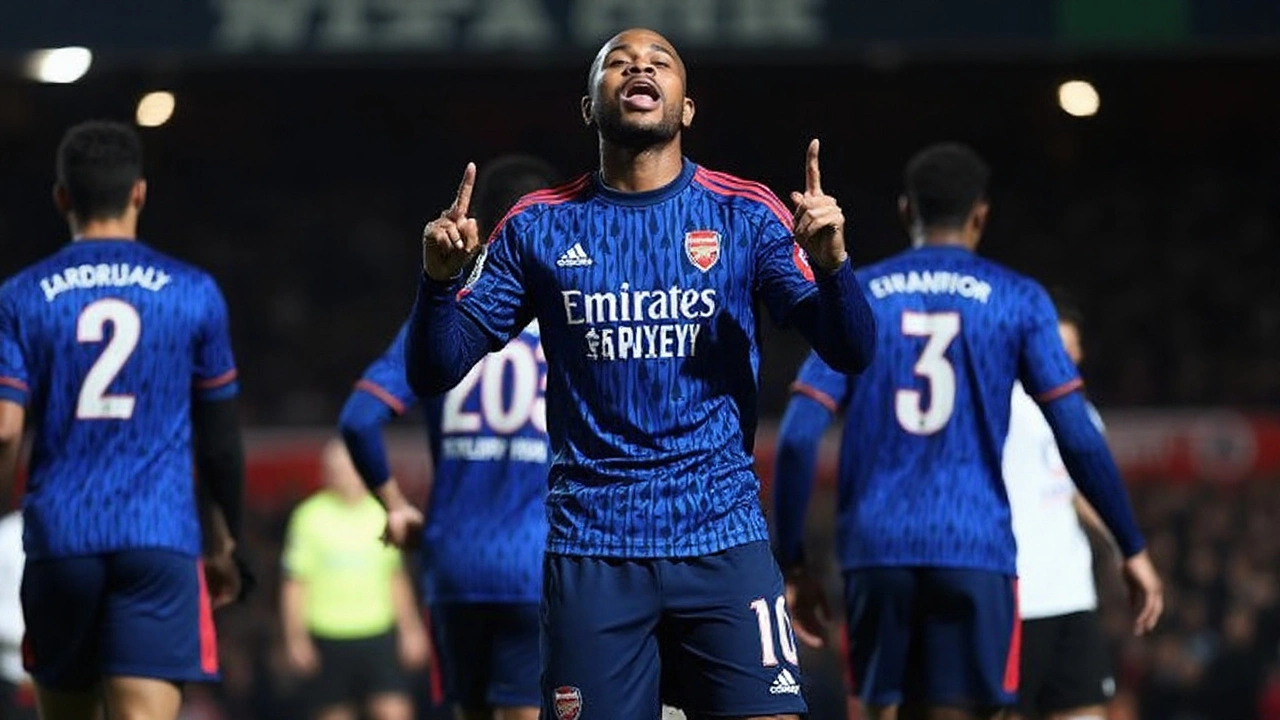Arsenal survived a tricky trip to Vale Park, beating League One side Port Vale 2-0 in the EFL Cup third round. New signing Eberechi Eze opened his scoring account in the opening minutes, while Leandro Trossard added a second in the second half. The Gunners dominated possession and shot statistics, easing any fears of a cup upset. Both managers made tactical changes, with Arsenal giving a debut to academy prospect Max Dowman. The win sends Arsenal into the fourth round and keeps their season momentum alive.
EFL Cup Explained: What You Need to Know
If you hear anyone talking about the Carabao Cup, they're referring to the EFL Cup – England's knockout football competition that's been around since 1960. It may sit in the shadow of the FA Cup, but it delivers plenty of drama, giant‑killing upsets and early chances for clubs to win silverware.
Why does it matter? For Premier League sides, it’s a chance to rotate squads and give younger players a taste of senior football. For lower‑league clubs, it’s a ticket to face a top‑flight team and maybe pull off a shock victory. That mix of ambition and opportunity makes the cup a must‑watch for any football fan.
How the Competition Works
The EFL Cup follows a straight‑knockout format. All 92 clubs from the Premier League and the English Football League enter, but they join at different stages. Championship, League One and League Two teams start in the first round. Premier League clubs not involved in European competition enter in the second round, while those playing in the Champions League or Europa League join at the third‑round stage.
Every round is a single‑leg tie, except for the semi‑finals, which are played over two legs. If a match is tied after 90 minutes, it goes straight to penalties – no extra time in the early rounds. The final is a single game at Wembley Stadium, and the winner secures a spot in the next season’s Europa Conference League, provided they haven’t qualified for a higher European competition through league position.
Recent Winners and Memorable Moments
In the last few seasons, Liverpool and Manchester City have dominated, each lifting the trophy three times since 2015. Liverpool’s 2022 win against Chelsea was a classic 11‑penalty shoot‑out, while City’s 2021 victory over Tottenham sent a wave of confidence through their squad. One of the biggest upsets came when Leicester City, a lower‑league side, knocked out Arsenal in 2014 – a reminder that the cup can deliver the unexpected. Fans love the thrill of seeing a small club host a giant, and those moments often become city‑wide celebrations.
If you’re looking to keep up with the action, the EFL Cup schedule is published early in August. Matches are typically on Thursday evenings, making them easy to slot into a weekday routine. All games are streamed live on the official EFL website, while broadcasters like Sky Sports and BT Sport cover the later stages. Check your local listings for free‑to‑air options if you don’t have a subscription.
For the best viewing experience, set up a reminder for kickoff, grab a snack, and consider a quick pre‑match chat with friends. The cup’s fast‑paced nature means there’s always something happening – a sudden goal, a dramatic penalty shoot‑out, or a newcomer scoring their first senior goal.
Whether you’re a die‑hard supporter or just looking for a quick dose of football excitement, the EFL Cup offers plenty of reasons to tune in. Keep an eye on the draw, follow the underdogs, and enjoy the occasional surprise that makes English football so thrilling.
